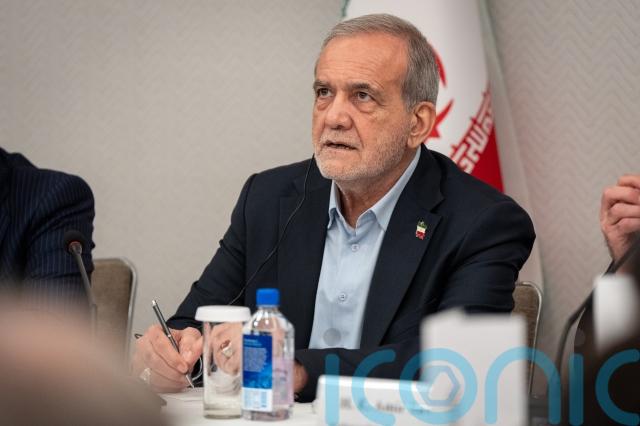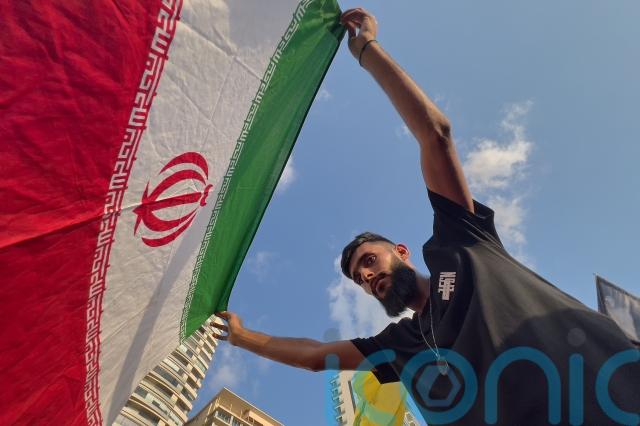
Ordinary people in Iran are dealing with soaring food prices and worried about the future ahead of the reimposition of United Nations sanctions over Tehran’s nuclear programme.
Iran’s rial currency already sits at a record low, increasing pressure on food prices and making daily life that much more challenging. That includes meat, rice and other staples of the Iranian dinner table.
Meanwhile, people worry about a new round of fighting between Iran and Israel – as well as potentially the United States – after the 12-day war in June.
"No more excuses.
No more delays.
No more ignoring legal obligations.
No more abandoning future generations."
— @antonioguterres calls for nuclear disarmament & the total elimination of nuclear weapons.#UNGAhttps://t.co/zHaftTD6Tz pic.twitter.com/ewUqahnGAr
— United Nations (@UN) September 26, 2025
Tehran has recalled its ambassadors from the UK, France and Germany ahead of the reimposition of sanctions.
Activists fear a rising wave of repression within the Islamic Republic, which already has reportedly executed more people this year than over the past three decades.
At midnight on Sunday GMT, barring any last-minute diplomatic breakthrough, UN sanctions on Iran will be reimposed through “snapback”, as the mechanism is called by the diplomats who negotiated it into Iran’s 2015 nuclear deal with world powers.
Snapback was designed to be veto-proof at the UN Security Council, meaning China and Russia cannot stop it alone, as they have other proposed actions against Tehran in the past.
The measure will again freeze Iranian assets abroad, halt arms deals with Tehran, and penalise any development of Iran’s ballistic missile programme, among other measures.

France, Germany and the United Kingdom triggered snapback over Iran, further restricting monitoring of its nuclear programme and the deadlock over its negotiations with the US.
Iran further withdrew from International Atomic Energy Agency (IAEA) monitoring after Israel’s war on the country in June, which also saw the US strike nuclear sites in the Islamic Republic.
Meanwhile, the country still maintains a stockpile of uranium enriched up to 60% purity – a short, technical step away from weapons-grade levels of 90% – that is largely enough to make several atomic bombs, should Tehran choose to rush towards weaponisation.
Iran has long insisted its nuclear programme is peaceful, though the West and IAEA say Tehran had an organised weapons programme up until 2003.
Tehran has further argued that the three European nations should not be allowed to implement snapback, pointing in part to America’s unilateral withdrawal from the accord in 2018, during the first term of Donald Trump’s US administration.

“The Trump administration appears to think it has a stronger hand post-strikes, and it can wait for Iran to come back to the table,” said Kelsey Davenport, a nuclear expert at the Washington-based Arms Control Association.
“Given the knowledge Iran has, given the materials that remain in Iran, that’s a very dangerous assumption.”
Risks also remain for Iran as well, she added: “In the short term, kicking out the IAEA increases the risk of miscalculation. The US or Israel could use the lack of inspections as a pretext for further strikes.”
One ordinary Iranian, the father of a 12-year-old boy, said his country has never faced such a challenging time, even during the deprivations of the 1980s Iran-Iraq war and the decades of sanctions that came later.
“For as long as I can remember, we’ve been struggling with economic hardship, and every year it’s worse than the last,” he told The Associated Press.
“For my generation, it’s always either too late or too early – our dreams are slipping away.”
Subscribe or register today to discover more from DonegalLive.ie
Buy the e-paper of the Donegal Democrat, Donegal People's Press, Donegal Post and Inish Times here for instant access to Donegal's premier news titles.
Keep up with the latest news from Donegal with our daily newsletter featuring the most important stories of the day delivered to your inbox every evening at 5pm.